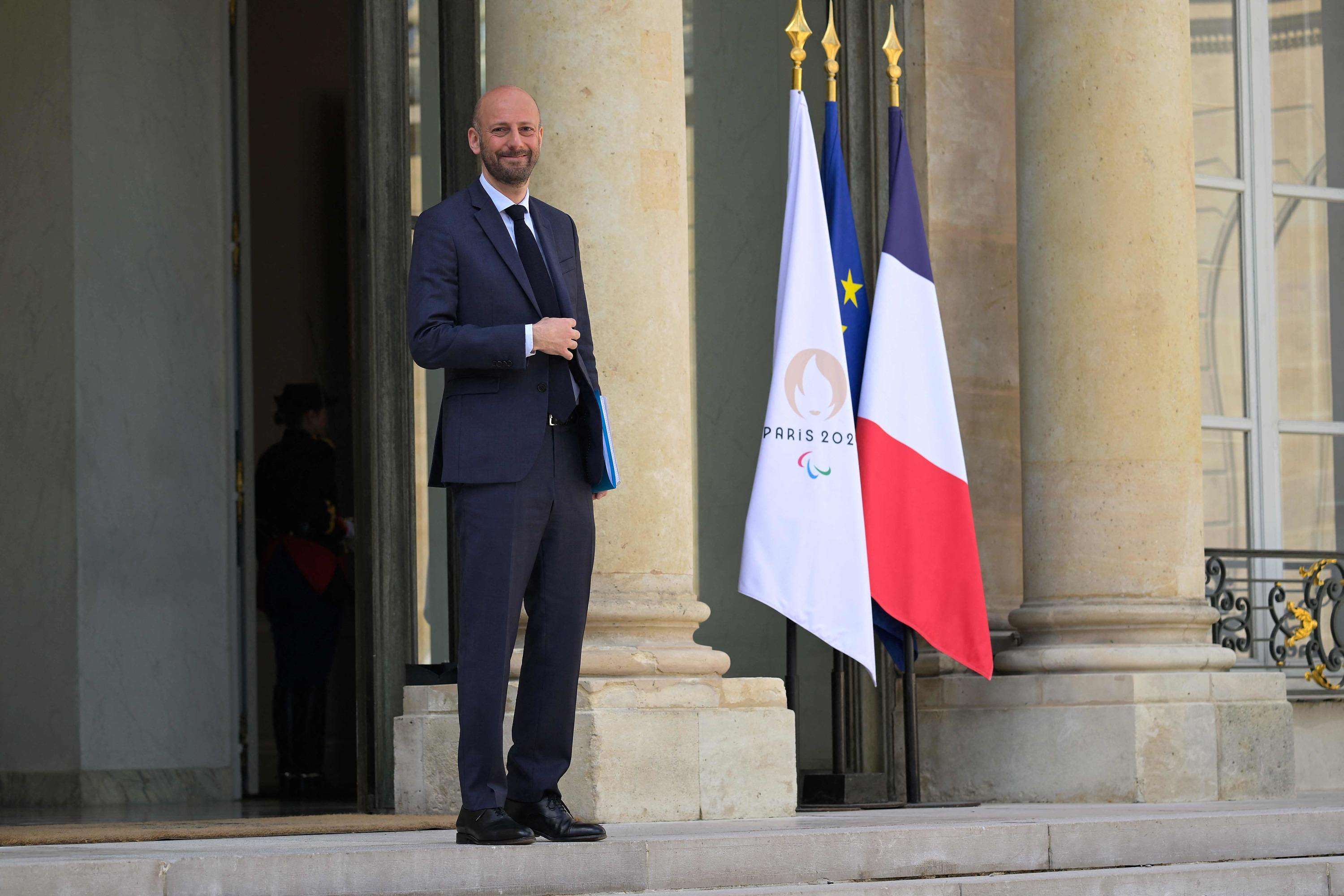At the weekend, the explosive position paper was suddenly no longer available on the website of the FDP parliamentary group. "We withdrew it because it was just an uncoordinated draft," said Christoph Meyer, deputy leader of the FDP parliamentary group responsible for financial policy. Before the paper is published again, it must be decided by the parliamentary group.
Obviously someone was called back. Because there is no mention of a “draft” on the nine pages. In addition, it was Meyer himself who had already commented publicly on the content in the "Handelsblatt". Unmatched, as it is now called.
The content is as unusual as the process is. On page 8 of the supposed draft there is a sentence that one could not expect in an FDP paper: There is talk of "higher" taxes and thus of something that Christian Lindner, party chairman and finance minister, has been mantra-like excluding for months. Only last week did he do this again when he pointed this out to his "Dear Colleague" Robert Habeck (Greens) in a bittersweet exchange of letters.
And now, of all times, when not only the Greens, but also the SPD, in the person of party leader Saskia Esken and Secretary General Kevin Kühnert, are talking about extended “budgetary leeway”, the Liberal parliamentary group is suddenly demanding tax increases.
In the position paper with the unwieldy title "Economic freedom instead of subsidies - our answer to the Inflation Reduction Act (IRA)", the Free Democrats in the German Bundestag list measures with which the federal government, from their point of view, can counteract the multi-billion dollar subsidy program of the US government should react.
First of all, under point 7, a reduction in income tax is announced. The intensified location competition requires "thinking about a revenue-neutral adjustment of the tax structure". Therefore, in this legislative period, proposals should be drawn up as to how structural improvements could be achieved in the income tax, also “in order to further reduce the high marginal income tax rates that are hostile to growth”. Elsewhere it is said that the Liberals also want to reduce corporate income tax and trade tax.
As far as this FDP position is known. It is in line with the leading business associations, which in their own, apparently coordinated position paper are calling for a lower tax burden on domestic corporations and partnerships.
The sentence that causes trouble in the FDP is different. Apparently aware that a comprehensive reform of the income tax rate would tear a hole in the tens of billions of euros in the national budget, the parliamentary group proposes an instrument for counter-financing. "This could be counter-financed by higher indirect taxes, fewer exemptions from the normal VAT rate and a reduction in questionable tax reductions," it says.
Higher VAT rates for lower income taxes. The outcry in the left camp was correspondingly large at the weekend when the paper became known. Because an increase in VAT would hit low earners relatively harder than high earners. They now pay a lower percentage of direct taxes on their income, but in return there are proportionally more indirect taxes, for example when shopping in the supermarket.
The accusation was quickly formulated in the social networks from the political left that the FDP wanted to make politics at the expense of the poor if they increased the reduced tax rate of seven percent on food to the normal rate of 19 percent.
"It's getting more and more blatant: the FDP is obviously discussing whether to completely abolish the reduced rate of VAT. That would be a fat price increase for food, which hits the poorest in particular!" wrote Lukas Scholle, a research assistant in the Bundestag office of Bundestag member Christian Görke from the left, via the short message service Twitter.
FDP financial politician Meyer made it clear at the beginning of the week: "We do not want to increase the VAT rate on staple foods." This should be made clear in the revised paper, which the parliamentary group may decide next week, by adding an addition to the indirect taxes. However, we can already hear from the parliamentary group that it might be best to delete the whole sentence with the "higher indirect taxes".
"Everything on shares" is the daily stock exchange shot from the WELT business editorial team. Every morning from 7 a.m. with our financial journalists. For stock market experts and beginners. Subscribe to the podcast on Spotify, Apple Podcast, Amazon Music and Deezer. Or directly via RSS feed.

 B:SM will break its investment record this year with 62 million euros
B:SM will break its investment record this year with 62 million euros War in Ukraine: when kyiv attacks Russia with inflatable balloons loaded with explosives
War in Ukraine: when kyiv attacks Russia with inflatable balloons loaded with explosives United States: divided on the question of presidential immunity, the Supreme Court offers respite to Trump
United States: divided on the question of presidential immunity, the Supreme Court offers respite to Trump Maurizio Molinari: “the Scurati affair, a European injury”
Maurizio Molinari: “the Scurati affair, a European injury” Beware of the three main sources of poisoning in children
Beware of the three main sources of poisoning in children First three cases of “native” cholera confirmed in Mayotte
First three cases of “native” cholera confirmed in Mayotte Meningitis: compulsory vaccination for babies will be extended in 2025
Meningitis: compulsory vaccination for babies will be extended in 2025 Spain is the country in the European Union with the most overqualified workers for their jobs
Spain is the country in the European Union with the most overqualified workers for their jobs In the United States, a Boeing 767 loses its emergency slide shortly after takeoff
In the United States, a Boeing 767 loses its emergency slide shortly after takeoff The A13 motorway will not reopen on May 1
The A13 motorway will not reopen on May 1 More than 1,500 items for less than 1 euro: the Dutch discounter Action opens a third store in Paris
More than 1,500 items for less than 1 euro: the Dutch discounter Action opens a third store in Paris 100 million euros in loans, water storage, Ecophyto plan… New measures from the executive towards farmers
100 million euros in loans, water storage, Ecophyto plan… New measures from the executive towards farmers New York justice returns 30 works of art looted from Cambodia and Indonesia
New York justice returns 30 works of art looted from Cambodia and Indonesia Les Galons de la BD dedicates War Photographers, a virtuoso album on the Spanish War
Les Galons de la BD dedicates War Photographers, a virtuoso album on the Spanish War Theater: Kevin, or the example of an academic failure
Theater: Kevin, or the example of an academic failure The eye of the INA: Jean Carmet, the thirst for life of a great actor
The eye of the INA: Jean Carmet, the thirst for life of a great actor Skoda Kodiaq 2024: a 'beast' plug-in hybrid SUV
Skoda Kodiaq 2024: a 'beast' plug-in hybrid SUV Tesla launches a new Model Y with 600 km of autonomy at a "more accessible price"
Tesla launches a new Model Y with 600 km of autonomy at a "more accessible price" The 10 best-selling cars in March 2024 in Spain: sales fall due to Easter
The 10 best-selling cars in March 2024 in Spain: sales fall due to Easter A private jet company buys more than 100 flying cars
A private jet company buys more than 100 flying cars This is how housing prices have changed in Spain in the last decade
This is how housing prices have changed in Spain in the last decade The home mortgage firm drops 10% in January and interest soars to 3.46%
The home mortgage firm drops 10% in January and interest soars to 3.46% The jewel of the Rocío de Nagüeles urbanization: a dream villa in Marbella
The jewel of the Rocío de Nagüeles urbanization: a dream villa in Marbella Rental prices grow by 7.3% in February: where does it go up and where does it go down?
Rental prices grow by 7.3% in February: where does it go up and where does it go down? Even on a mission for NATO, the Charles-de-Gaulle remains under French control, Lecornu responds to Mélenchon
Even on a mission for NATO, the Charles-de-Gaulle remains under French control, Lecornu responds to Mélenchon “Deadly Europe”, “economic decline”, immigration… What to remember from Emmanuel Macron’s speech at the Sorbonne
“Deadly Europe”, “economic decline”, immigration… What to remember from Emmanuel Macron’s speech at the Sorbonne Sale of Biogaran: The Republicans write to Emmanuel Macron
Sale of Biogaran: The Republicans write to Emmanuel Macron Europeans: “All those who claim that we don’t need Europe are liars”, criticizes Bayrou
Europeans: “All those who claim that we don’t need Europe are liars”, criticizes Bayrou These French cities that will boycott the World Cup in Qatar
These French cities that will boycott the World Cup in Qatar Tennis: “I need to regain confidence in my body,” explains Rafael Nadal
Tennis: “I need to regain confidence in my body,” explains Rafael Nadal NBA: Orlando returns to level with Cleveland in the 1st round of the play-offs
NBA: Orlando returns to level with Cleveland in the 1st round of the play-offs Tennis: Iga Swiatek in the round of 16 at full speed
Tennis: Iga Swiatek in the round of 16 at full speed “It was exceptional here in Chaban-Delmas”: Escudero looks back on the excitement around France-England
“It was exceptional here in Chaban-Delmas”: Escudero looks back on the excitement around France-England

















